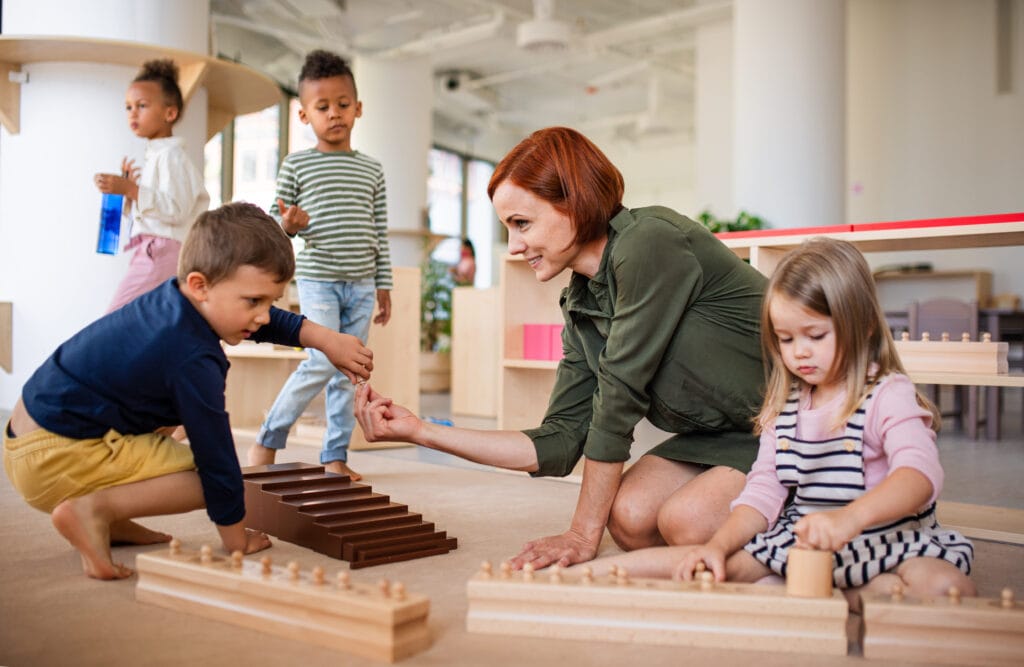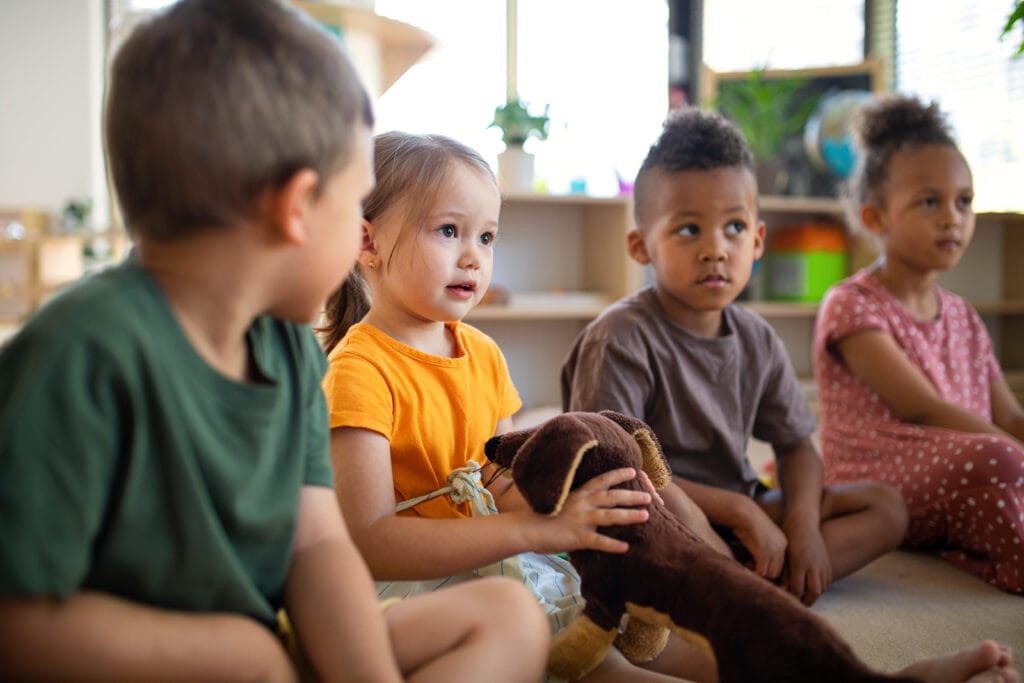Consultation Works!

POSITIVE IMPACT FOR TEACHERS
Project PLAY is designed to ease teacher frustration with a child’s challenging behaviors.
Our work begins by helping staff identify potential underlying causes of the behavior. Then, we partner with staff to develop learning environments and teaching strategies that build teacher-child trust. Evaluations show our process is effective!
Teachers report significant decreases in conduct, hyperactivity, and peer problems.
At the end of their BehaviorHelp partnership, teachers witness less fighting, fidgeting and squirming, and bullying behaviors.
Teachers also report significant increases in children’s prosocial behaviors.
They are more likely to see children sharing, offering help, and showing consideration for their peers’ feelings.
These changes add up to a better work life. The evaluation data show that Project PLAY partnerships reduce staff intention to leave the teaching profession!

BENEFITS FOR CHILDREN
Challenging behaviors are often rooted in trauma, which may be difficult to detect in young children. In fact, 74% of children referred to Project PLAY have experienced difficult events, such as abuse and neglect, parent incarceration, or parent military deployment. In some cases, teachers were unaware of these events before starting the consultation process.
Strategies that teachers learn through a Project PLAY partnership help children cope with big feelings and learn to trust their teachers and peers. Our consultants may also connect children’s families to high-quality medical and mental health resources for further assessment or treatment. Interventions in early childhood reduce the need for special education or grade retention in primary school.
Supporting Children in Foster Care
In Arkansas, 3,000 children under the age of 6 are in foster care, and most attend child care. They are at high risk for expulsion due to trauma-related behaviors, but disruptions in caregiving relationships and routines make behavior problems worse. Through Project PLAY, 66% of referred children maintain enrollment in their early learning program, increasing the likelihood of healing and long-term healthy development.
Peer-Reviewed Publications
| Conners Edge, N.A., Kyzer, A., Davis, A.E. & Whitman, K. (2021, online first) Infant and Early Childhood Mental Health Consultation in the Context of a Statewide Expulsion Prevention Initiative. Journal of Educational & Psychological Consultation doi: 10.1080/10474412.2021.1983440 Download Infant and Early Childhood Mental Health Consultation Abstract | Conners Edge, N.A., Kyzer, A., Abney, A., Freshwater, A., Sutton, M. & Whitman, K. (2021) Evaluation of a statewide initiative to reduce expulsion of young children. Infant Mental Health Journal, 42, 124-139. doi: 10.1002/imhj.21894. Download Evaluation of Statewide Initiative Abstract |
| Conners-Burrow, N., McKelvey, L., Sockwell, L., Harman Ehrentraut, J., Adams, S. and Whiteside-Mansell, L. (2013), Beginning to “Unpack” Early Childhood Mental Health Consultation: Types of Consultation Services and Their Impact on Teachers. Infant Ment. Health J., 34: 280–289. doi: 10.1002/imhj.21387 Download Beginning to Unpack Abstract | Conners-Burrow, N. A., Whiteside-Mansell, L., Mckelvey, L., Virmani, E. A. and Sockwell, L. (2012), Improved classroom quality and child behavior in an Arkansas early childhood mental health consultation pilot project. Infant Ment. Health J., 33: 256–264. doi: 10.1002/imhj.21335 Download Improved Classroom Quality Abstract |

